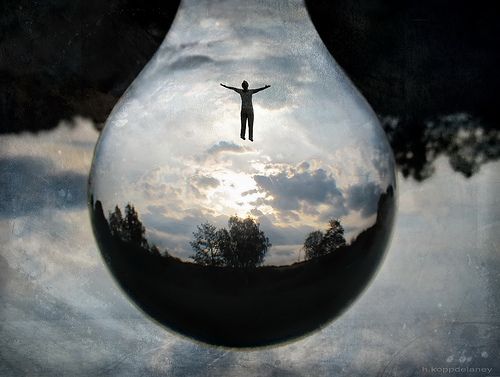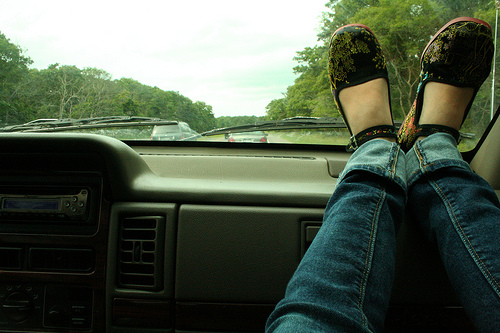
Over the years I’ve learned dozens of little tricks and insights for making life more fulfilling. They’ve added up to a significant improvement in the ease and quality of my day-to-day life. But the major breakthroughs have come from a handful of insights that completely rocked my world and redefined reality forever.
The world now seems to be a completely different one than the one I lived in about ten years ago, when I started looking into the mechanics of quality of life. It wasn’t the world (and its people) that changed really, it was how I thought of it.
Maybe you’ve had some of the same insights. Or maybe you’re about to.
1. You are not your mind.
The first time I heard somebody say that — in the opening chapter of The Power of Now — I didn’t like the sound of it one bit. What else could I be? I had taken for granted that the mental chatter in my head was the central “me” that all the experiences in my life were happening to.
I see quite clearly now that life is nothing but passing experiences, and my thoughts are just one more category of things I experience. Thoughts are no more fundamental than smells, sights and sounds. Like any experience, they arise in my awareness, they have a certain texture, and then they give way to something else.
If you can observe your thoughts just like you can observe other objects, who’s doing the observing? Don’t answer too quickly. This question, and its unspeakable answer, are at the center of all the great religions and spiritual traditions.
2. Life unfolds only in moments.
Of course! I once called this the most important thing I ever learned. Nobody has ever experienced anything that wasn’t part of a single moment unfolding. That means life’s only challenge is dealing with the single moment you are having right now. Before I recognized this, I was constantly trying to solve my entire life — battling problems that weren’t actually happening. Anyone can summon the resolve to deal with a single, present moment, as long as they are truly aware that it’s their only point of contact with life, and therefore there is nothing else one can do that can possibly be useful. Nobody can deal with the past or future, because, both only exist as thoughts, in the present. But we can kill ourselves trying. Read More






 I'm David, and Raptitude is a blog about getting better at being human -- things we can do to improve our lives today.
I'm David, and Raptitude is a blog about getting better at being human -- things we can do to improve our lives today.
I find that, for me, the problem is less about staying committed to my goals than it is about deciding which goals are worth pursuing in the first place, and what the best way to pursue them is. I guess what I'm suffering from is some kind of ungodly hybrid...